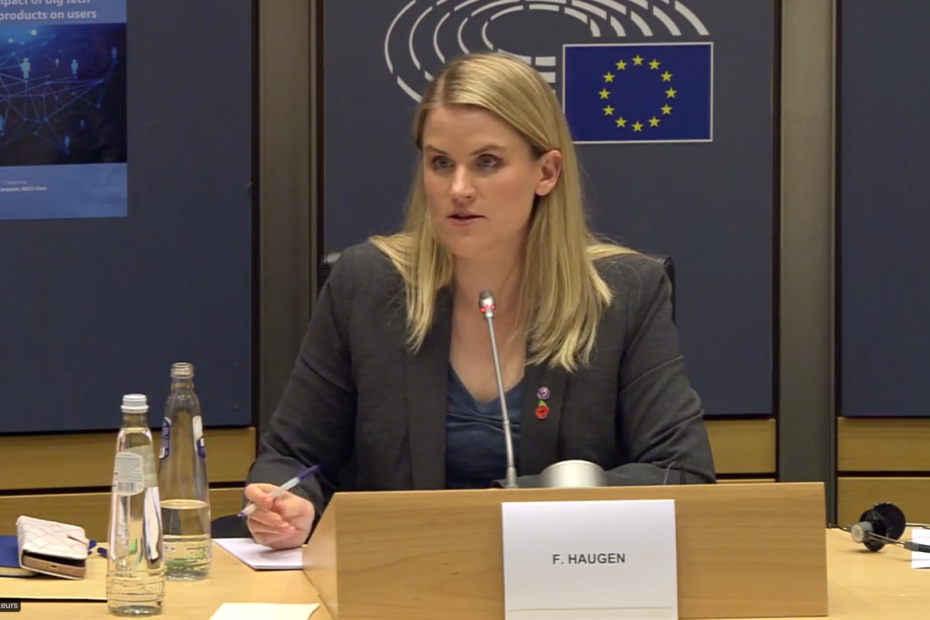If the EU really wants to revamp the online world, it should start shaping legislation with the platform models in mind it likes to support, instead of just going after the ones it dislikes.
Whistleblowers are important. They often provide evidence and usually carry conversations forward. They might be able to open the debate to new audiences. I am grateful to Frances Haugen for having the courage to speak and the energy to do it over and over again across countries, as the discussion is indeed global.
On the other hand the hearings didn’t reveal anything completely new, we didn’t learn something we didn’t already know. We live in a time where the peer-to-peer internet has essentially been replaced by a network of platforms, which, in their overwhelming majority, are for-profit, data-collecting and indispensable in everyday life.
Again, we know all of this. And yet it seems we are running after what’s wrong trying to curtail it. Which is fine. But we seem to be forgetting where we want to be.
I, for one, would like to work, play and live on an internet where for every large for-profit online service I also have an equally viable community-driven alternative. Yes, I am a Wikipedia enthusiast, but I wouldn’t want to live without Britannica and I do miss the Encarta Encyclopaedia.
I do miss the opportunity to send messages to all platforms (including Facebook) from a third-party client. I do want to share interesting and funny moments with friends and family without having to agree to a mesmerising array of conditions that amount to me being tracked almost everywhere online.
Let’s focus on platform models and communities, rather than old ideas
So, how do we get there? The answer I have is as simple as it is unsurprising. You try to stem unwanted developments and boost alternatives. But for this the conversation needs to go beyond dusty and defect ideas like “removal deadlines”, website blocking and “stay downs”. Instead we need to move toward the more systemic challenges.
We need to give room to community lead and operated projects to freely develop, especially when they are not-for-profit. They are a viable alternative and can deliver top notch services. The DSA could at least recognise that they exist and are valuable.
I get an unpleasant feeling every time I read about prohibitions. Yet, we need to talk about limiting the amount of targeted advertising we experience and the fact that we in practice don’t have a choice. It has become such a dominant model that it doesn’t let alternatives develop. Plus, there is a viable alternative – contextual advertising. If an opt-in mechanism that deserves that name can’t exist, a ban will be necessary.
We should also talk about interoperability. It is a content question for the services act, not just a market question for the DMA. If I had a freer choice where to go, without being excluded from my friends and family, many of the issues we have now wouldn’t be as magnified. It must be possible to text, call and share with each other across services.
I think the EU is currently debating something that other jurisdictions won’t touch upon very soon. We are ahead of the curve. Let’s make it count!









